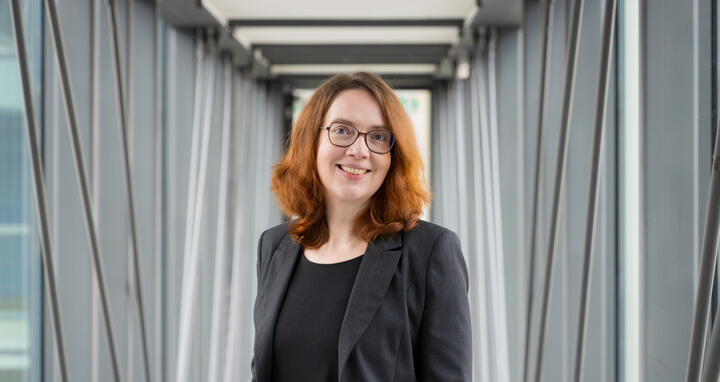Ines Lahmann wins Helmholtz Field Study Fellowship
Dr. Ines Lahmann, a scientist in Stem Cell Modelling of Development and Disease lab of Dr. Mina Gouti at the Max Delbrück Center, has been awarded a €28,500 Helmholtz Enterprise Field Study Fellowship. The funds are to be used exclusively to conduct research on the market viability of a technology or product. Helmholtz Enterprise Field Study Fellowships are open to scientists working in any of the 18 Helmholtz Association Centers. They are intended to encourage entrepreneurship and to help scientists develop a business plan.
Lahmann plans to use the funds to explore whether NMJCare – an in vitro system derived from patients’ stem cells to model human neuromuscular connections – can be optimized for industrial applications – such as drug development or toxicity testing. Key objectives include defining a first product concept, identifying potential partners in the pharmaceutical and biotech sectors, and gaining a better understanding of regulatory requirements. The project will begin in January 2026 and will run for three months.
The fellowship is part of Helmholtz Enterprise (HE), an internal program for spin-offs from the Helmholtz Association. The overall purpose of the program is to support scientists to work entrepreneurial and start a well-thought-out business. HE not only provides financial support, but also offers structured mentoring, access to an experienced transfer network, and targeted training opportunities to support professional spin-off preparation.
“Our NMJCare platform has the potential to fundamentally transform preclinical research. It enables more precise, human-tissue based testing, reduces reliance on animal experiments, and accelerates the development of new, effective therapies for rare neuromuscular diseases such as spinal muscular atrophy,” says Lahmann. “The fellowship will help us take an important step toward translating our research into real-world applications.”





